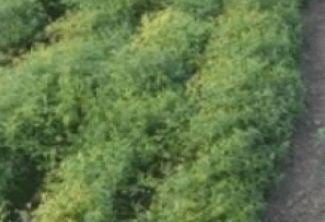
RAJSHAHI, Sept 17, 2024 (BSS) - A high-yielding, biofortified zinc and iron-
enriched lentil variety 'BARI Masur- 8' is being promoted in the region,
including its vast Barind tract, to meet up the gradually mounting demands of
pulse.
The Department of Agricultural Extension (DAE) and Global Alliance for
Improved Nutrition (GAIN), a Swiss-based foundation, are working to promote
the lentil variety through financial and technical support.
BARI and Bangladesh Agricultural Development Corporation (BADC) are also
working to expedite the field level activities related to expanding this
lentil variety.
DAE Additional Director Mahmudul Faruque said the variety is a biofortified
enriched in zinc and iron and its production and consumption will eradicate
the deficiency of zinc and iron, which is a very essential micronutrient for
the human body.
Bangladesh Agricultural Research Institute (BARI) developed the variety that
contains 27.8 percent protein, he added.
Sharing her field level experience Umme Salma, Deputy Director of DAE, said
there is no need of applying chemical nitrogen fertilizers. Excess stored
nitrogen is supplied to the next crop, she added.
Dr Monir Uddin, Agronomist and Consultant of GAIN Bangladesh, told BSS that
zinc is one of the most important micronutrients and essential to maintain
physical health because the body has no special zinc storage system.
If there is zinc deficiency in the mother's body, the baby's development is
disrupted and the baby is born with various complications, he said.
Dr Monir said zinc deficiency causes stunted or stunted growth in humans,
especially children. Lack of zinc impairs or hinders the child's intellectual
development.
He, however, said lentils are rich in protein and it helps build and maintain
muscles, bones, and skin together with maintaining brain health, improving
cholesterol levels, regulating blood sugar levels, fiber and helps digestion.
Dr Ashek Mahfuz said GAIN's mission is to advance nutrition outcomes by
improving consumption of nutritious and safe food for all, especially the
most vulnerable group.
Dr Ashek Mahfuz said the country produces 2.06 lakh metric tons of lentils
against the demand of 6.4 lakh tons at present.